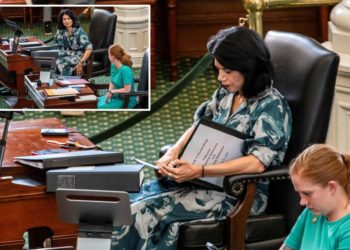Lyle Menendez, 57, was denied parole Friday at his initial suitability hearing, a day after his younger brother Erik was also rejected in his bid for release from the San Diego prison where the two have spent nearly 35 years. The panel determined Lyle should remain incarcerated for at least three more years.
Parole commissioners highlighted both the seriousness of the brothers’ 1989 crime and Lyle’s conduct in prison. During the hearing, Commissioner Garland emphasized that Lyle’s behavior still showed signs of risk to the public. She noted that while Lyle has participated in programs and maintained positive relationships with staff and fellow inmates, he continues to struggle with underlying antisocial traits, including deception, minimization, and rule-breaking.
“Citizens are expected to follow the rules whether or not there is some incentive to do so,” Garland said. She also underscored the importance of Lyle continuing to demonstrate the person he shows himself to be while running programs for other inmates. “Don’t ever not have hope … this denial is not … it’s not the end. It’s a way for you to spend some time to demonstrate, to practice what you preach about who you are, who you want to be,” she added.
The hearings marked the closest the Menendez brothers have come to release since a judge reduced their life sentences in May, making them immediately eligible for parole review. On Thursday, Erik Menendez’s hearing ended with commissioners denying his release for three years. They cited repeated rule violations, including cellphone infractions, and described his behavior as “selfish” and “disturbing.” Commissioner Robert Barton told Erik, “Two things can be true. They can love and forgive you, and you can still be found unsuitable for parole.”
The Menendez brothers were convicted in 1996 of murdering their parents, Jose and Kitty Menendez, inside their Beverly Hills mansion on Aug. 20, 1989. Prosecutors argued they acted to gain access to a multimillion-dollar inheritance, while defense attorneys contended they were responding to years of sexual abuse by their father. The jury sided with prosecutors.
After the killings, the brothers embarked on an extravagant spending spree, purchasing luxury cars, watches, trips abroad, and, in Lyle’s case, a New Jersey restaurant. They were arrested in 1990 after Erik confessed to his therapist.
During Erik’s hearing, commissioners described the murders in stark terms, particularly the “execution-style” killing of Kitty Menendez. “The killing of your mother especially showed a lack of empathy and reason,” Barton said. Garland similarly reflected on Lyle’s impulsive and callous actions during the crime, including the final shot fired at Kitty. She cited his poor threat perception regarding their father and highlighted the brothers’ efforts to cover up the murders by lying to police and avoiding prosecution.
Despite these findings, Garland acknowledged the brothers’ youth at the time of the crime, noting that Lyle was under 26 and heavily influenced by a dysfunctional environment created by their father. She commended the positive steps Lyle has taken in prison, including program participation and efforts to mentor other inmates.
Nearly 35 years later, the Menendez case remains one of the most sensational parricide trials of the 20th century. Friday’s ruling means both brothers remain behind bars, leaving supporters’ calls for forgiveness once again unanswered.
The post Lyle Menendez denied parole after brother’s denial the day before appeared first on KTLA.




